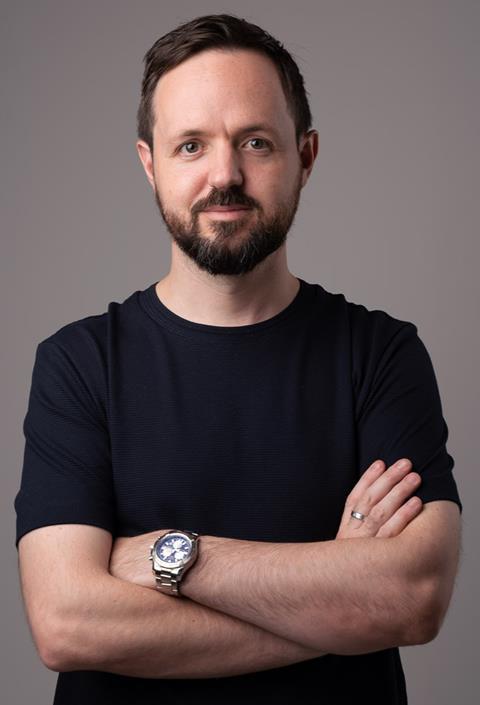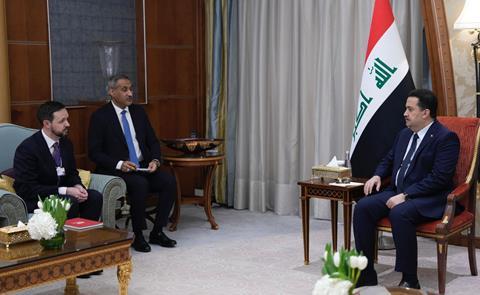Vertical Future’s Jamie Burrows believes autonomous vertical farming systems can have a major impact in Iraq and the wider Middle East region, helping resolve issues of food and water security
Based in the UK, Vertical Future designs, manufactures and deploys intelligent autonomous Controlled Environment Agriculture (CEA) systems around the world, for the cultivation of fresh products including leafy greens.
Fruitnet spoke to founder and CEO Jamie Burrows, who met with Iraq’s prime minister, Mohammed Shia Al-Sudani, following the World Economic Forum in Saudi Arabia last month to discuss the potential for vertical farming to improve food systems in the Middle East region, and how Vertical Future can assist in solving issues of food and water security.

Can you give us some idea of the main challenges currently facing Iraq?
Jamie Burrows: Iraq is known as “the land of the two rivers”, yet it has an acute water issue, directly affecting food production. Published studies predict that water will run dry by 2040 – water that supports 98 per cent of the population. The ramifications of this happening are almost unimaginable, with widespread death and migration at the forefront.
In addition to the rivers running dry, Iraq has clearly been in a state of war for decades and is severely lacking in infrastructure in all areas, so there are still issues. The prime minister’s ambitious, forward-looking strategy for mass infrastructure deployment aims to tackle this, but action must be swift, science- and technology-driven, and effective.
What role can vertical farming play in Iraq?
JB: Autonomous vertical farming systems, supported by plant science data improving in perpetuity, will have a major impact on the Iraqi food system. Scale and alignment with the dietary requirements of the population are both important (and challenging) factors to consider, but the ambition and intent are there to make it happen. Other countries, particularly in MENA and other regions across the globe, face similar challenges, but the challenges in Iraq are especially acute due to its geographical positioning, population demographics and decades of war.
What products do you envisage being produced in the short and longer term?
JB: Leafy greens form a core part of the offering, but it is clear that Iraq is not a market where “premium” priced products will (or should) be accepted. Therefore, scalable farms must be built that can make use of economies of scale, the energy infrastructure and purchasing power benefits in order to produce consistent, safe and high-quality crops, at price parity.
Vertical farming has experienced a tough period in the past year. What gives you confidence in its viability in Iraq?
JB: Many of the media and consumer assumptions concerning the viability of vertical farming over the past year have been based on a handful of predominantly US companies that have been led by capitalist ideologies, with unreasonable return expectations, in most cases backed by farms that have been at scale but have not utilised or thought properly about the right mix of technology, plant science and growing expertise.

We at Vertical Future saw these issues coming years before and have pursued a strategy that addresses all the aforementioned factors. Too many companies and investors sought the gold rush but didn’t have the right tools, looked in the wrong areas, or had unachievable objectives. The market is slowly moving on from these mistakes, failures and the natural attrition rate that occurs in any sector.
Why should sustainability be a priority in a country with such sizeable challenges as Iraq?
JB: Sustainability is made up of many metrics, and of course it should be viewed no differently in Iraq than in any other country. At Vertical Future, in the context of sustainable food production, we view sustainability as the ability to feed a population with healthy, safe food at a fair price point. Vertical farming is not just about feeding the top 1 per cent, as it has been used for in the past. Healthy food should be accessible to all.
Do you think Iraq can become an example in terms of the response to issues of food security and water scarcity in the wider region?
JB: This is certainly our goal and that of all parties involved. If we can get it to work in Iraq, the sky is the limit in terms of geographies that possess far fewer challenges.



